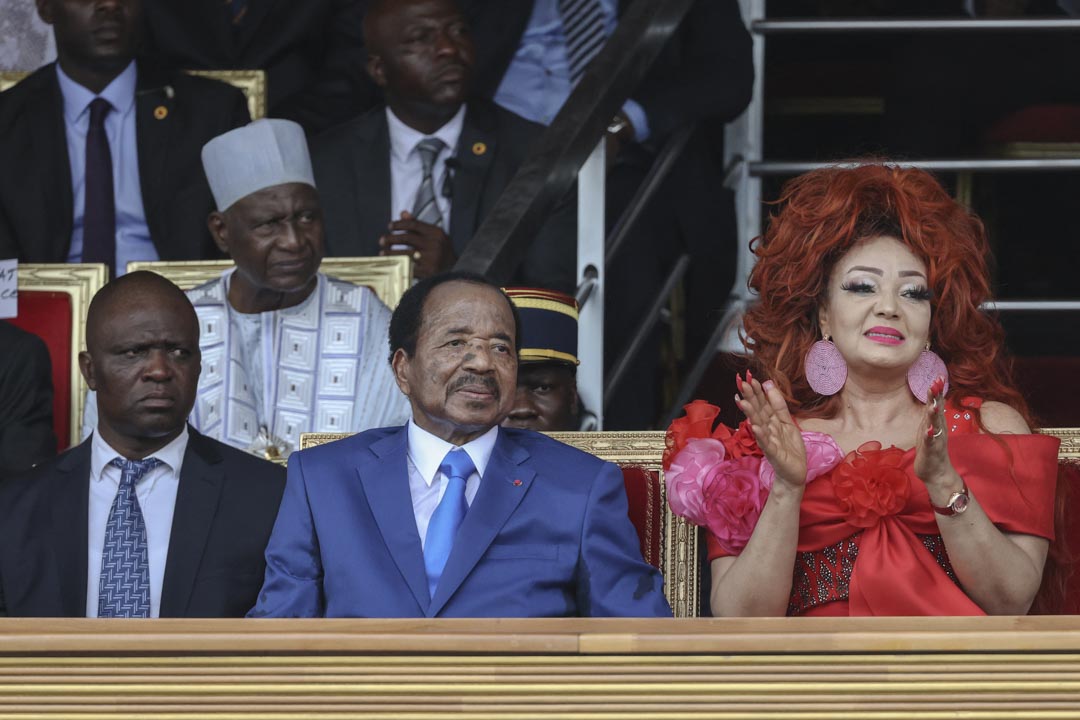By AFP
Elvis Nghobo tried to enroll in four different vocational schools in Cameroon — but each attempt ended in disappointment. Frustrated, the 34-year-old abandoned his educational dreams and turned to selling food in a market in Yaoundé, the country’s political capital.
Nghobo blames his struggles on what he calls a corrupt education system that favors the children of the elite. As the Central African nation heads to the polls on Sunday, he has already made up his mind: he won’t vote.
He believes the outcome is predetermined in favor of Paul Biya — the 92-year-old president and the world’s oldest sitting leader — who has ruled Cameroon for more than four decades. “He’s already too old to govern, and it’s exhausting to know only him as president,” Nghobo told the Associated Press.
His frustration echoes that of millions of young Cameroonians, whose median age is just 18 — a stark reminder of the continent’s growing generational divide between youthful populations and aging rulers.
A Nation in Political Stasis
Biya is seeking an eighth term in Sunday’s single-round presidential election, in which 8.2 million Cameroonians are registered to vote. He has ruled the country since 1982, following the resignation of Ahmadou Ahidjo, and has since won seven consecutive elections.
“Faced with an increasingly difficult international environment, the challenges before us are growing more urgent,” Biya said as he announced his candidacy. “In such a situation, I cannot abandon my mission,” he added.
But for many young people, the government’s promises ring hollow. Despite modest economic growth and oil revenues, opportunities remain scarce. Official unemployment stands at 3.5%, but roughly 57% of Cameroonians aged 18–35 work in the informal sector, according to the World Bank. Many believe the benefits of the economy are captured by a small elite.
Cameroon is also grappling with multiple security crises: a separatist conflict in the English-speaking west, where communities say they are marginalized by the French-speaking majority, and sporadic Boko Haram attacks in the north.
Opposition Under Pressure
Biya faces nine opposition candidates, including former ministers Issa Tchiroma Bakary and Bello Bouba Maigari. However, popular opposition leader Maurice Kamto — who secured 14% of the vote in 2018 — has been barred from running.
The electoral commission claimed Kamto’s party violated regulations by backing another candidate, a justification his lawyers dispute. Kamto was previously arrested for demanding electoral transparency after the last election.
“The main opposition candidates are all former ministers under Paul Biya who resigned just weeks before the presidential race. Young people see this as hypocrisy — proof that the country is still driven by the ‘politics of the belly,’” said Wilson Tamfuh, a law professor at the University of Dschang.
He described this as a strategy of fielding “fake opponents” to fracture real opposition movements in exchange for political favors.
“President Until Death”
Analysts say Biya’s power endures not because of popularity, but due to entrenched elite networks.
“There’s no doubt Biya is deeply unpopular in the country, but he enjoys the backing of many elites and traditional leaders thanks to corruption and financial interests,” said Nat Powell, Africa analyst at Oxford Analytica.
The ruling Cameroon People’s Democratic Movement (CPDM) controls 94 of 100 Senate seats and 152 of 180 seats in the National Assembly. Biya’s prolonged stays in Europe have fueled speculation about his health, but his inner circle sees him as the linchpin holding the system together.
“In part, he wants to remain president until his death,” Powell said. “But it’s also tied to his inner circle and the ruling party — they view him as a stabilizing figure.”
Patriotism vs. Disillusionment
At the University of Yaoundé I, 27-year-old geoscience student Manoung Wilfried admitted he is uninspired by any candidate but plans to vote out of patriotism.
“For the good of the country, he should hand over power to someone else who can better understand and solve young people’s problems,” he said of Biya.
Others, like Nghobo, have lost faith altogether. “Change in this country can only come through other means — not through the ballot box,” he said.
As election day approaches, the divide between hope and disillusionment among Cameroon’s youth has never been clearer.


